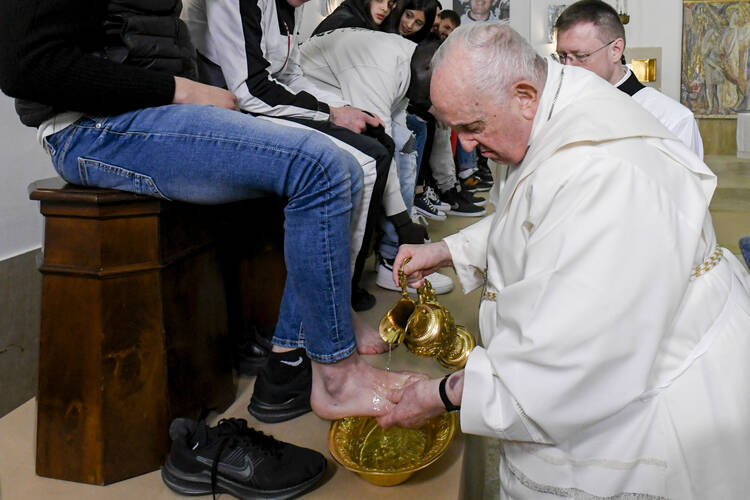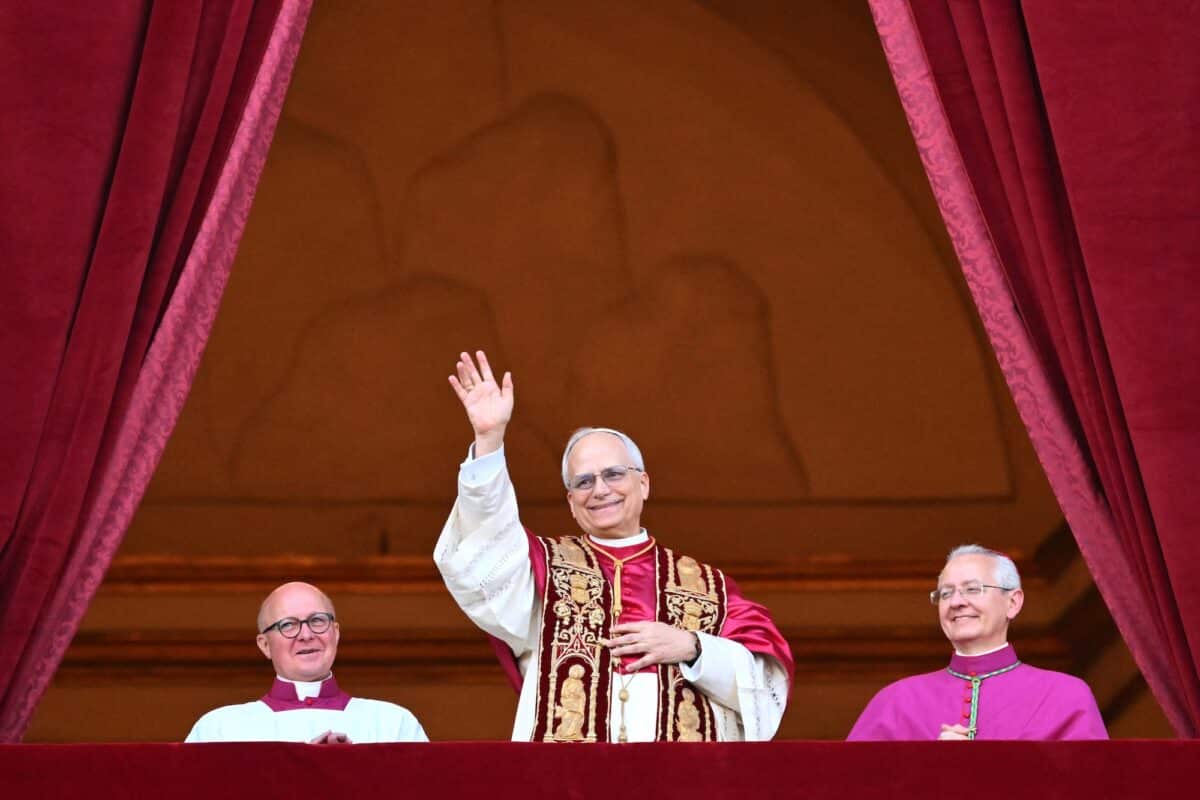The world went silent yesterday as Pope Francis, the 266th leader of the Catholic Church, passed away on April 21, 2025 at the age of 88.
His death came after a stroke and irreversible cardiovascular arrest at the Saint Martha House in Vatican City, ending a pontificate that began on March 13, 2013.
From the moment of his election as the first Latin American pope and the first Jesuit at that, Pope Francis broke new ground. Born Jorge Mario Bergoglio in Buenos Aires to Italian immigrant parents, his path to the papacy was anything but conventional. The son of immigrants who fled Mussolini’s Italy, Francis built a life far from his ancestral home.
As the world mourns his passing, we reflect on why this humble servant leader ignited the hearts of millions of Christians and non-Christians around the globe.
READ: Our 10 favorite mass songs
Brave critiques on political justice
Before his rise to the Catholic Church’s highest position, Pope Francis maintained a complicated relationship with his native Argentina, and never set foot again in his homeland since becoming pope.
Being a staunch and brave critic of Argentina’s corruption and economic inequality made him unpopular with many Argentine politicians.
The young Francis faced hard times early on in his priesthood. During Argentina’s military dictatorship in the 1970s, he was sent into de facto exile in Frankfurt, Germany, and then to Córdoba, Argentina.
These difficult years shaped his compassionate worldview and strengthened his resolve to stand with those facing injustice.
Champion of the underdog
Besides his political activism, what often endeared Pope Francis to people was his simplicity, coupled with his tireless immersion in poor communities.
Pope Francis was a perfect picture of humility. It was well known that he chose to live in the modest two-room suite in the Vatican’s Saint Martha guesthouse rather than the luxurious penthouse of the papal apartments.

As cardinal in Buenos Aires, he was known for taking public transportation, particularly the subway, blending in with everyday commuters despite his high rank. He carried his own luggage and paid his own hotel bills.
In Vatican City, he drove a modest, 20-year-old white Renault, avoiding the bulletproof “Popemobile” as much as he could. He also isn’t a fan of the traditional vibrant red papal footwear, famously preferring his old, comfortable black leather shoes instead.
In his work as a holy man, the pope was known to have worked directly with those on the peripheries of society all his life.

Often recalled is Pope Francis’ practice of the Christian ritual washing of the feet—which he did for prisoners, refugees, disabled people, and others from marginalized communities. In 2013, he stunned the world as he washed the feet of 12 prisoners, including women and Muslims. This was at a time when popes only washed the feet of other priests, changing the papal narrative on what’s appropriate and what’s not. In this act, he practiced servant leadership and continued to do the humbling, intimate tradition throughout his papacy.
The pope who knew how to laugh
Besides his humility and simplicity, what makes Pope Francis relatable to the world is that he spent some time as an ordinary citizen, who fell in love and worked a regular job.
Before entering the seminary, the young Jorge Bergoglio worked briefly as a nightclub bouncer in Buenos Aires—a charming fact that delighted Catholics worldwide when it became widely known, as it humanized the pontiff and showed how he shared everyday human experience before entering the church.
Throughout his papacy, Pope Francis was known for his sparkling eyes, ready smile, and willingness to crack jokes, often at his own expense. His warm laughter would often fill a room, putting everyone at ease—from world leaders to small children.
Just last December 2024, Pope Francis wrote an essay for the New York Times, There is Faith in Humor,” emphasizing the importance of having a light heart to avoid narcissism, with “appropriate doses of self-irony,” while avoiding “wallowing in melancholy at all costs.”
He was always up to having fun. In Rome in 2015, Pope Francis joined the Harlem Globetrotters trying to spin a basketball on his finger. In 2019, he tried to spin another ball when the circus of Cuba visited the Vatican City.
Always light and willing to immerse with the people, Pope Francis was an approachable pope with a sweet demeanor and warmth that contrasted many of his more formal predecessors, giving him the affectionate nickname, “The People’s Pope.”
Advocacies from war to the environment
Not one to rest on his laurels, Pope Francis’ time was marked by his outspoken positions on multiple contemporary issues in the world.
He spoke for peace, regularly condemning armed conflicts and weapons manufacturing, once stating in a homily in September 2013, “War always marks the failure of peace, it is always a defeat for humanity.”
He also visited places where popes rarely visit—from war zones, refugee camps, prisons, slums, and environmental disaster areas.
His diplomatic efforts helped normalize US-Cuba relations after decades of tension, and he consistently advocated for dialogue in conflict zones, such as calling for the end of the war in Gaza, and personally visiting the war-stricken South Sudan.
In 2015, Francis released the beautiful encyclical “Laudato Si” (“Praise Be to You”), the first papal document focused entirely on environmental issues. In it, he wrote with poetic tenderness “on care for our common home” and characterized climate change as a moral crisis affecting the most vulnerable among us. He called for an “ecological conversion” among the faithful, linking environmental degradation directly to poverty and global inequality.

Pope Francis’ approach to the LGBTQIA+ community showed his more liberal stances. While maintaining traditional church doctrine on marriage, he adopted a noticeably more compassionate tone than previous popes. His famous “Who am I to judge?” comment regarding gay priests signaled a shift in rhetoric from condemnation to accompaniment.
He also said, “We have to find a way to help that father or that mother to stand by their [LGBTQIA+] son or daughter.” In 2023, he approved Catholic church blessings for same-sex couples. These statements and acts caused many churches around the world to be more open to LGBTQIA+ priests, especially the Jesuit communities, opening a door long thought to be permanently closed.
**
While Pope Francis didn’t always please traditionalists with his unconventional ways, like a true Jesuit, he shook up the world and inspired many.
In a heartwarming moment in 2018, a young boy snuck up to the pope during mass and touched a guard’s spear. While some may have shooed the boy away, the pope let him stay and quipped, “He is free, free and unruly. But he is free. He made me think of myself. Am I also so free in front of God?”

Another time in 2018, Pope Francis stopped the popemobile to give a kiss on the head to a 12-year-old boy with Down syndrome, who had been healed recently from leukemia.
READ: Pope Francis in PH: Things to remember
In the Philippines, his visit in 2015 drew millions, with many Filipinos lining the streets in the pouring rain just for a glimpse of him. Pope Francis also visited Tacloban City, which was then still recovering from Typhoon Hainan in 2013.
While Filipinos love Pope Francis, he is respected and admired by both Catholics and non-Catholics around the world.
His character speaks to the heart—whether thinking critically on environmental stewardship, kissing a sick child, washing the feet of hopeless prisoners, or quietly blessing same-sex couples—his love was radical, while his vision was open, inclusive, and accessible.
Besides his quick wit and warm heart, perhaps we love Pope Francis because he made the church not seem like a big, strict group of perfect little people, but more a refuge for the sinners and the downtrodden—a Church and a pope that loves the poor, the people, and the planet.
Let’s hope the next pope feels the same.










































